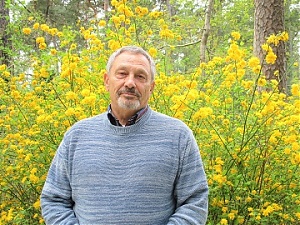Modern EU
International Internet Magazine. Baltic States news & analytics
Monday, 15.12.2025, 12:37
EU priorities: Baltic energy security
 Print version
Print version |
|---|
The EU’s present energy infrastructure is
both aging and often do not fit into the modern socio-economic circumstances;
in part, most of the Baltic States’ electricity networks are still connected to
the old Soviet- Belarusian electricity-generation systems.
Besides, modern energy systems shall be suited to ensure
security of supply and include energy production from renewable sources. It is
expected that in recent years the upgrading of existing, and development of new
energy transmission infrastructures in Europe will require investments of
about €140 bn in electricity and at least €70 bn in gas.
Short history
Since the beginning of its term at the end of 2014, the
Commission has worked to build consensus among partners on the roadmap which
has been finally agreed on with a set of targets to be fulfilled by 2025 for
the full synchronisation.
In March 2019, the Connecting Europe Facility €323
mln grant agreement was
signed to finance the first phase of the synchronisation process, covering 75%
of the total investment volume to complete the first phase.
In May 2019, the formal extension of the continental
European grid to the Baltic States' was approved within the European Network of
Transmission System Operators; the process was initiated by Poland.
The European Commission constantly underlined that it was committed
to facilitate decisive progress on the synchronisation and support the Baltic
States intention while working towards implementing strategic energy
infrastructure of the Baltic Sea region.
Vital move
In June 2019, the Commission leaders (the President and his Vice-President)
together with the Lithuanian President and Prime Ministers of Estonia, Poland
and Latvia signed a political declaration defining a roadmap to implement the
synchronisation of the Baltic States' electricity networks with the Continental
European Network via Poland.
Commission President underlined that the roadmap provides a
working plan for achieving full syncronisation by the end of 2025. “The Commission has always been committed to have full
integration of the Baltic States' grids with the rest of Europe, he added, and
that that the EU would facilitate decisive progress on synchronisation to implement
strategic energy infrastructure of the Baltic Sea region.”
Reference: https://ec.europa.eu/commission/presscorner/detail/en/IP_19_3337
Presently, some of the Baltic States’ “electricity regions”
are connected with the European partners through recently established electricity
lines with Poland (LitPol Link), Sweden (NordBalt) and Finland (Estlink 1 and Estlink 2).
These projects have been implemented through an extensive EU financial and
technical support during last decade.
The de-synchronisation of the Baltic States' electricity
grid from these systems and the synchronisation with the continental European
network (CEN) is an essential political priority for the achievement of the European
Energy Union. The relevant grid reinforcements have been included in the
third EU list of “projects of common interest” (PCIs) adopted by the
Commission in November 2017.
The EU Union list of projects of common interest can be seen
at: https://eur-lex.europa.eu/legal-content/EN/TXT/?uri=uriserv:OJ.L_.2018.090.01.0038.01.ENG&toc=OJ:L:2018:090:TOC
The PCIs are intended to help the EU achieve its energy
policy and climate protection objectives: affordable, secure and sustainable
energy for all citizens.
Generally, the EU’s
energy infrastructure is aging and in its current form is not
suited to match future demand for energy, to ensure security of supply or to
support large-scale deployment of energy from renewable sources. The upgrading
of existing, and development of new energy transmission infrastructures of
European importance will require investments of about €140 bn in electricity and at least €70 bn in gas.
Projects on the PCI list are also included into the
financial framework of the Connecting Europe Facility-Energy funding.
On financial instruments in: https://ec.europa.eu/inea/en/connecting-europe-facility/cef-energy
More information in the following web-links:
- Brochure: Ending energy isolation of Eastern Baltic Region;
- Energy
Union; - Baltic
Energy Interconnection Plan (BEMIP).
General reference: https://ec.europa.eu/commission/presscorner/detail/en/IP_19_3337








 «The Baltic Course» Is Sold and Stays in Business!
«The Baltic Course» Is Sold and Stays in Business!

